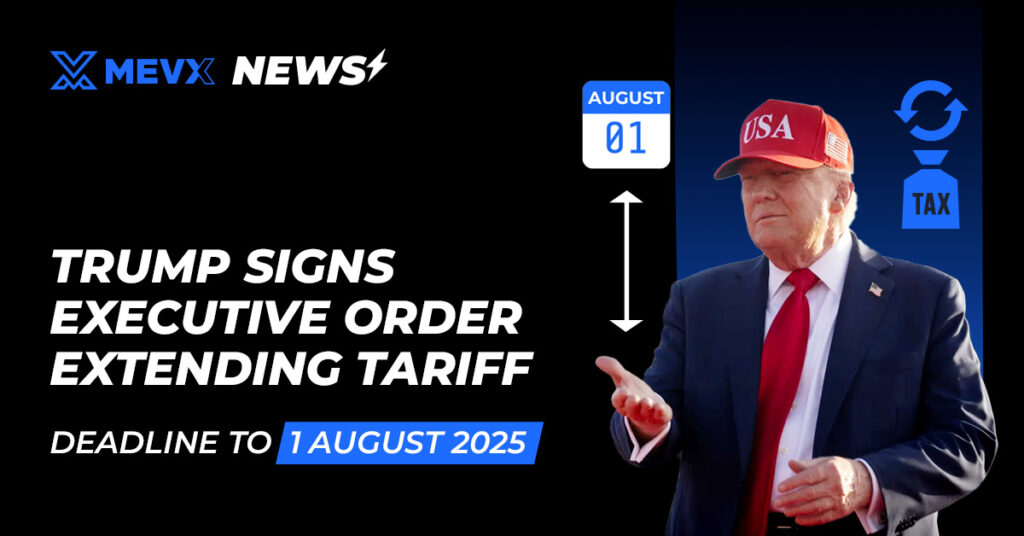TLDR:
- Milestone: U.S. President Donald Trump signed an executive order on July 7, 2025, delaying the implementation of “reciprocal” tariffs from July 9 to August 1, 2025, giving trading partners like Japan, South Korea, and others more time to negotiate trade deals.
- Narrative: Trump’s tariff extension underscores his aggressive strategy to rebalance global trade, targeting nations with lower tariffs on U.S. goods to correct imbalances while sparking market speculation and cautious optimism among affected countries.

On July 7, 2025, U.S. President Donald Trump signed an executive order extending the deadline for his proposed “reciprocal” tariffs from July 9 to 12:01 a.m. EDT on August 1, 2025, according to a White House statement. The order, amending Executive Order 14266, grants trading partners additional time to negotiate trade agreements amid rising global tensions, reinforcing Trump’s commitment to reshaping bilateral trade relations to address imbalances.
The executive order cites “additional information and recommendations from senior officials” and the “status of discussions with trading partners” as the basis for the extension. The suspension of tariffs, initially outlined in Executive Order 14266, is now prolonged until August 1, while a separate tariff suspension on China under Executive Order 14298 from May 12 remains unchanged. On the same day, Trump posted letters on Truth Social to leaders of 14 countries, including Japan and South Korea (25% tariffs), South Africa and Bosnia (30%), Indonesia (32%), Bangladesh and Serbia (35%), Cambodia and Thailand (36%), and Laos and Myanmar (40%), noting that these rates could adjust based on bilateral negotiations. This move comes after Trump’s overall policy to impose retaliatory tariffs in a bid to pursue fair trade and countries that have lower tariffs on U.S. goods compared to their domestic exports’ tariffs.
The extension of the tariff has sparked mixed reactions worldwide. South Korea pledged to intensify trade negotiations, and Japan’s Prime Minister Shigeru Ishiba had optimistic doubts about evading higher tariffs, according to Reuters. Malaysia and Thailand indicated hopes of negotiated lower rates, yet South Africa’s President Cyril Ramaphosa reproached the U.S. for employing “inaccurate” trade figures. Markets responded with ambiguity, as the S&P 500 declined by 0.8% and the U.S. dollar declined modestly, while investors weighed the potential economic impact of postponed but imminent tariffs. The extension declares Trump’s strategic flexibility, weighing pressure on trading partners against room for diplomacy, keeping world markets guessing.
Stay up-to-date on the MevX Blog with the latest news!
Share on Social Media:
